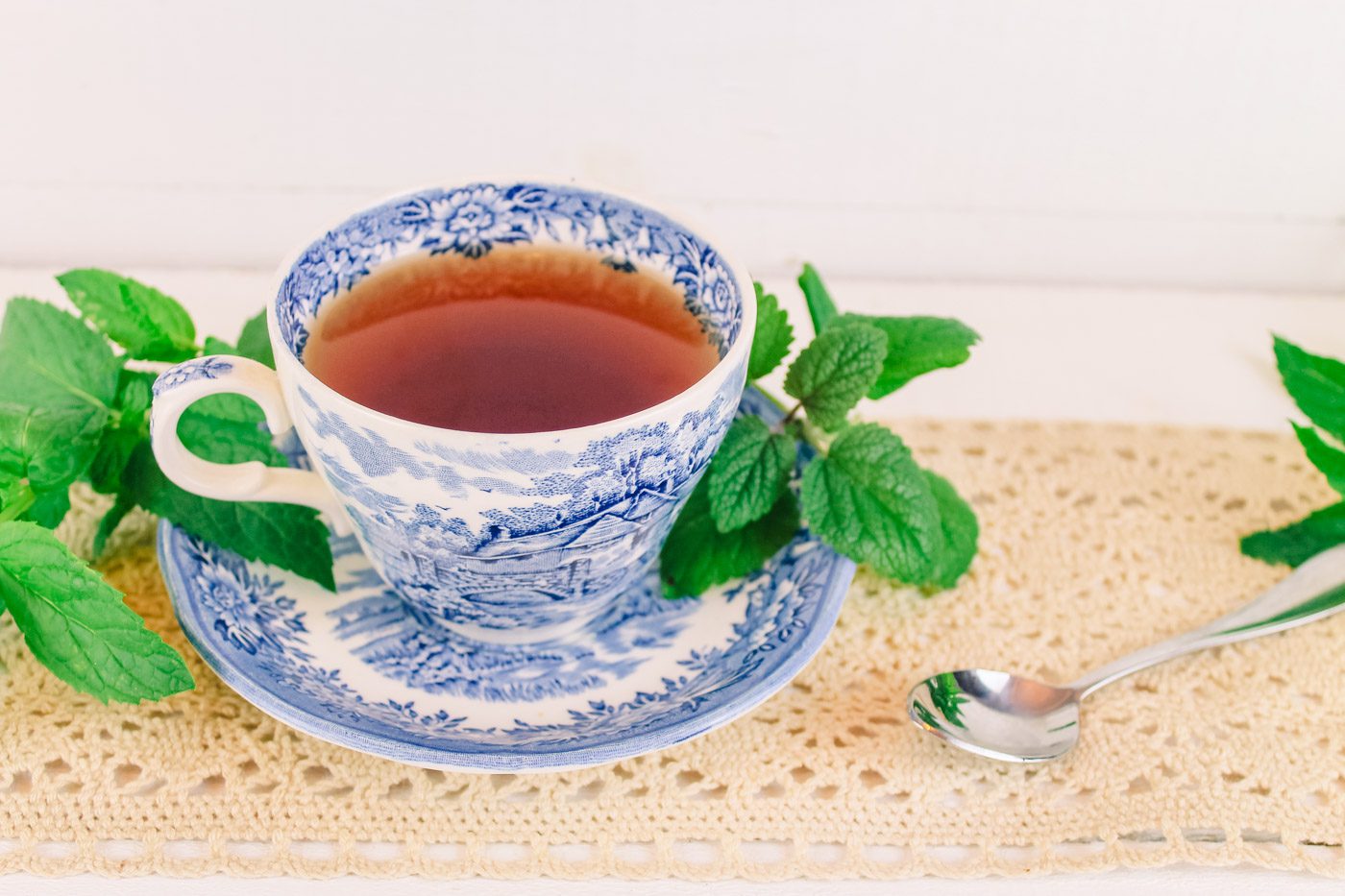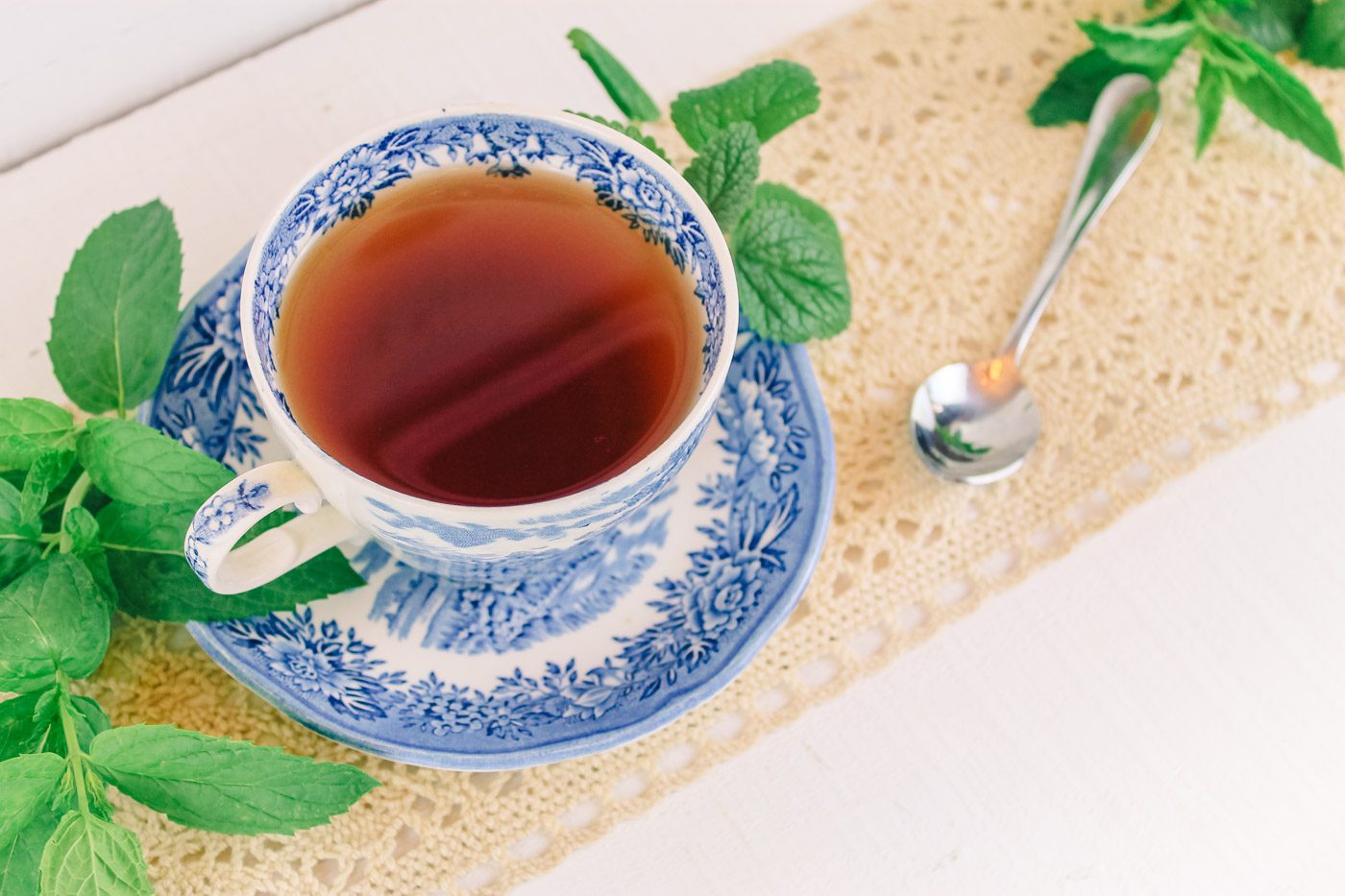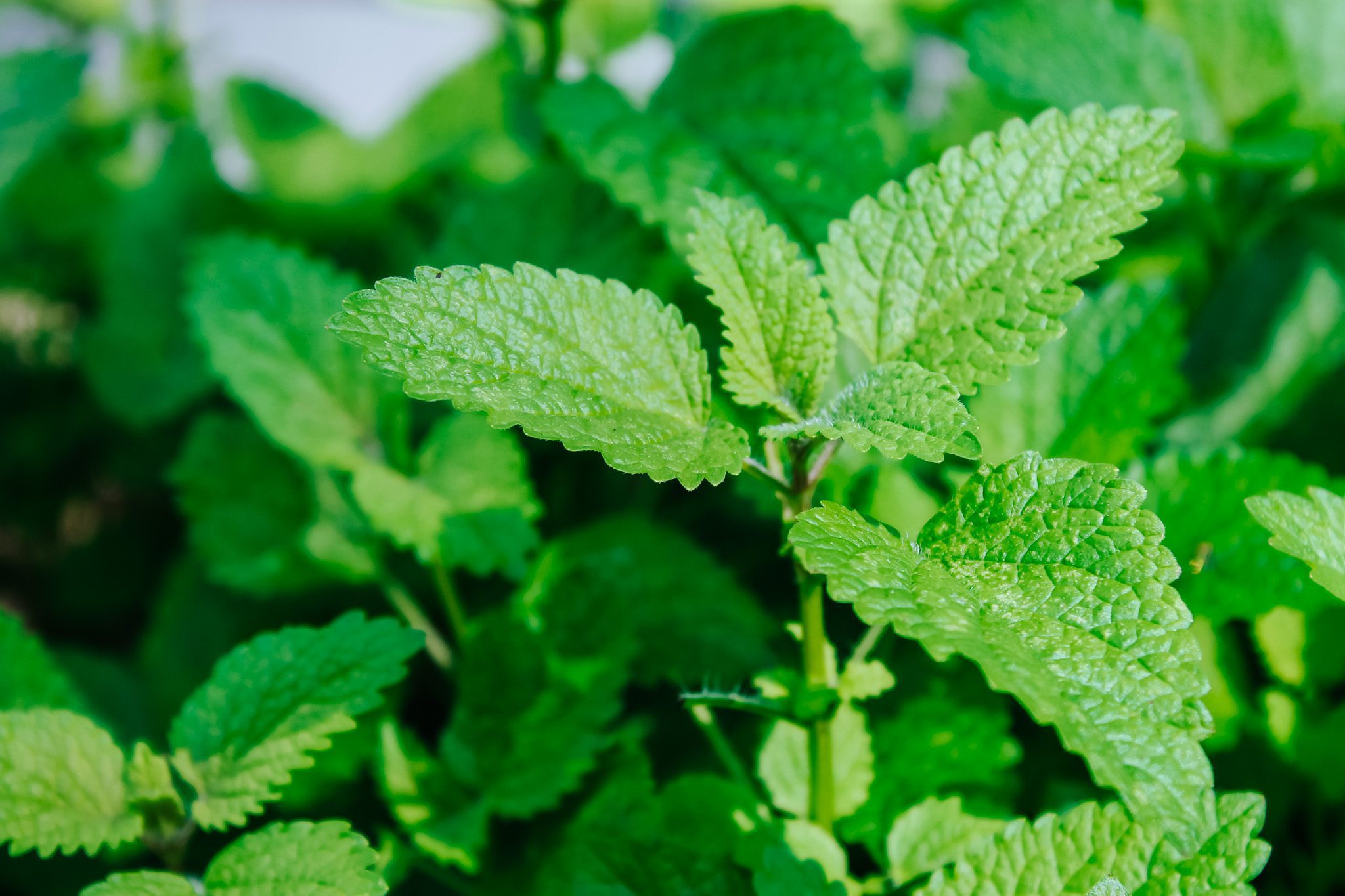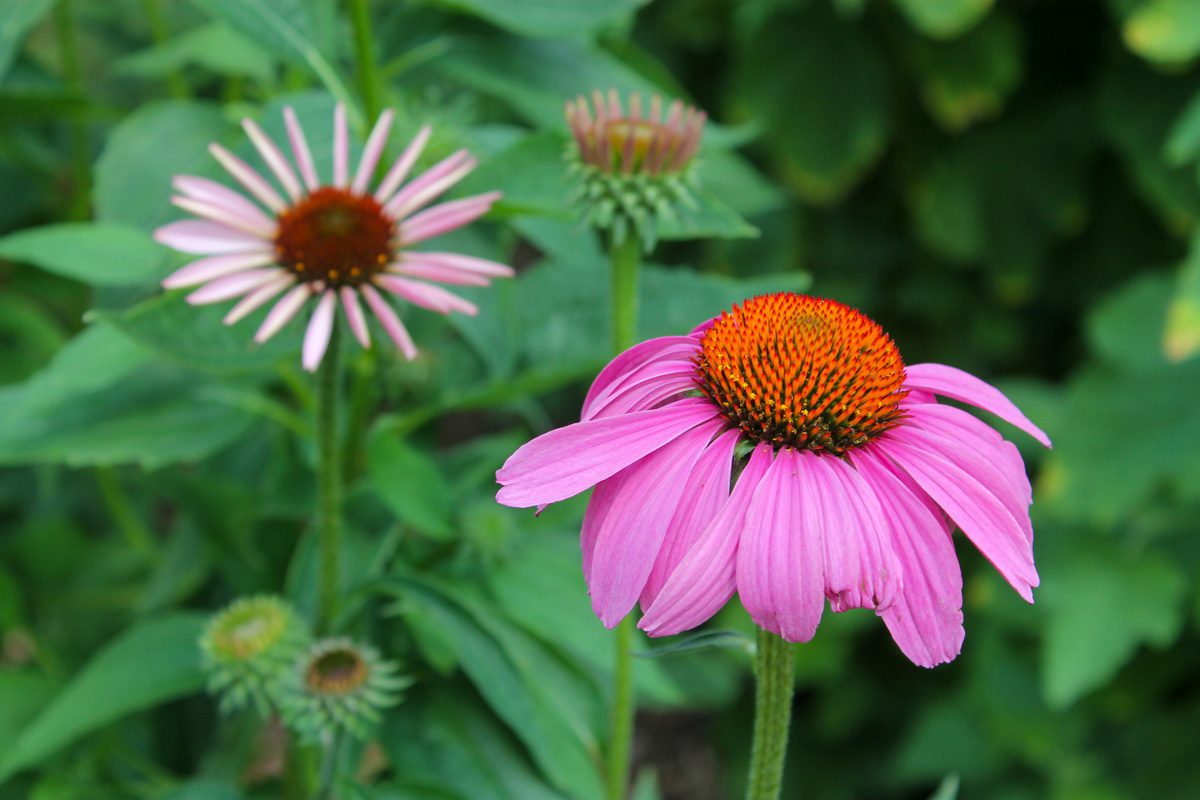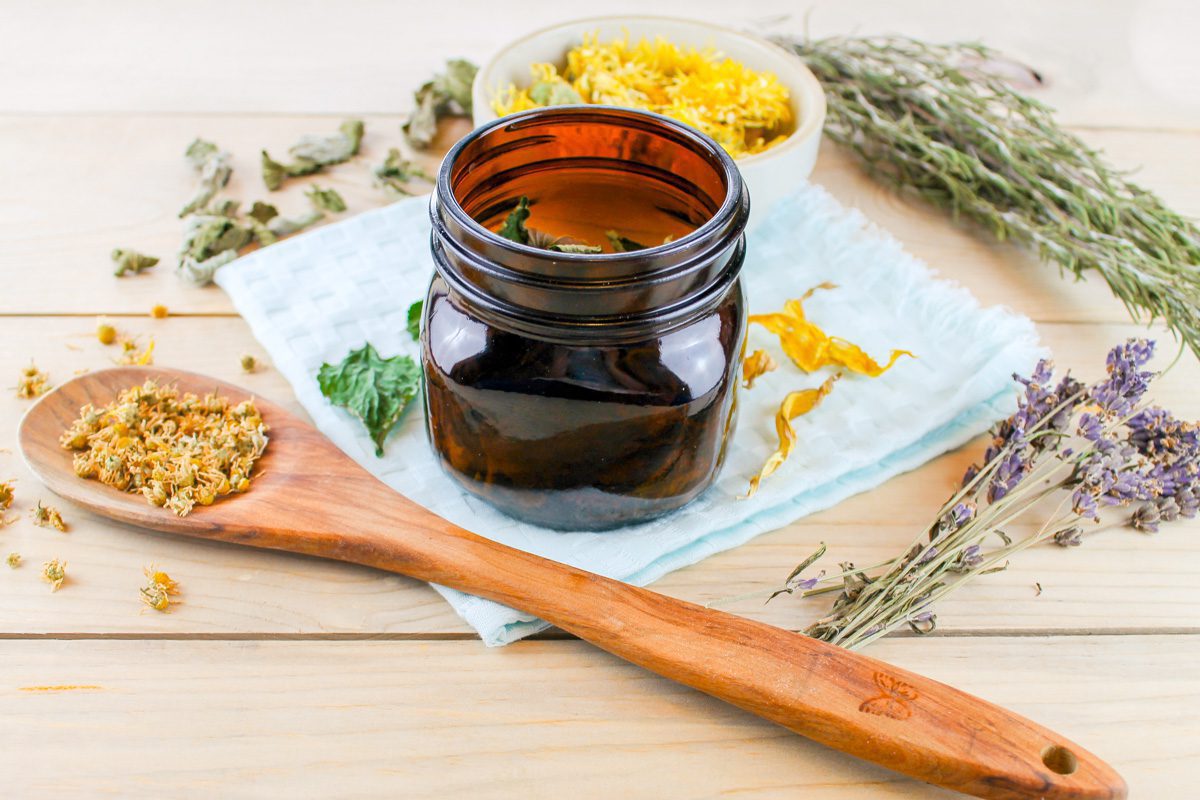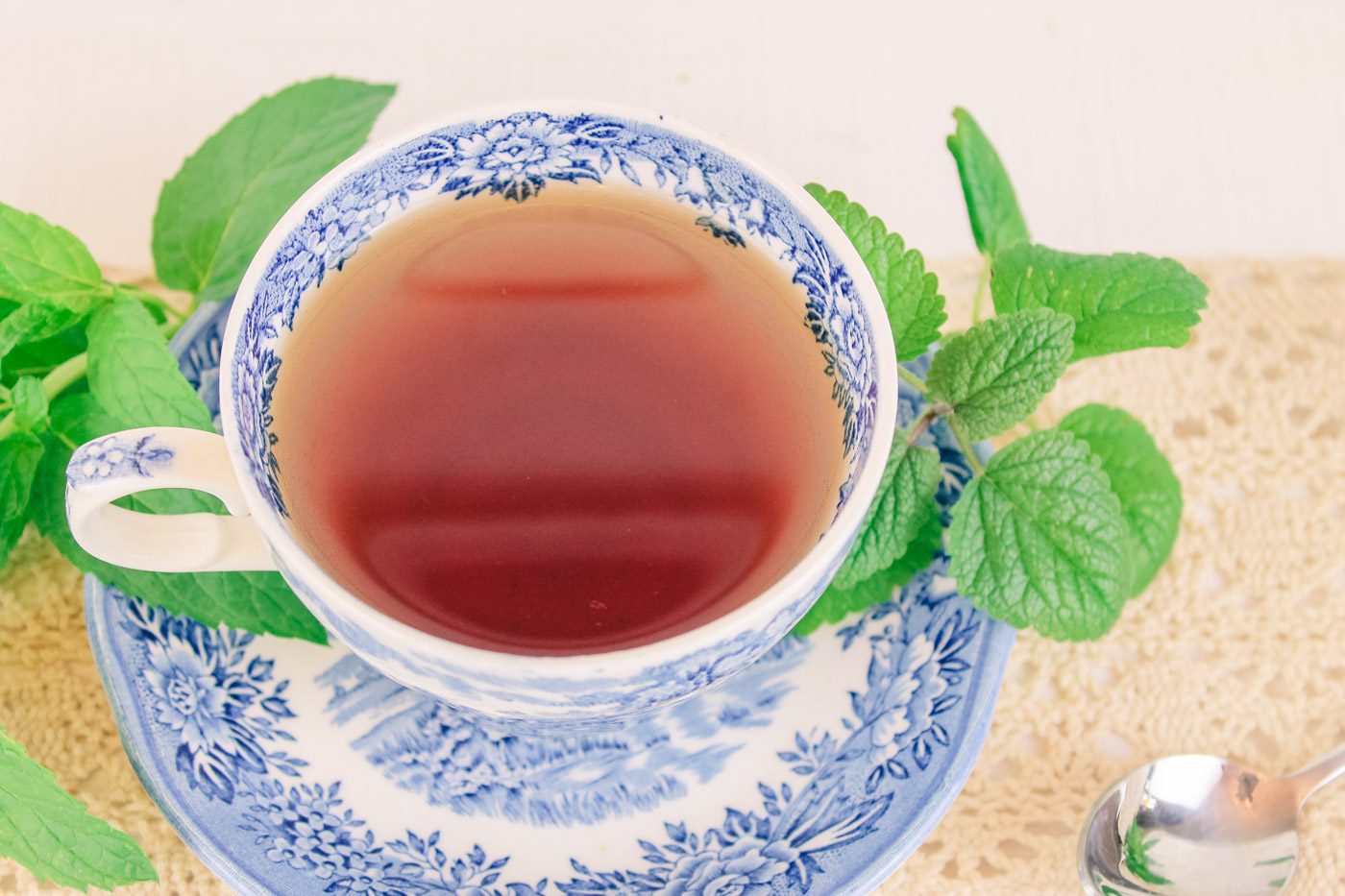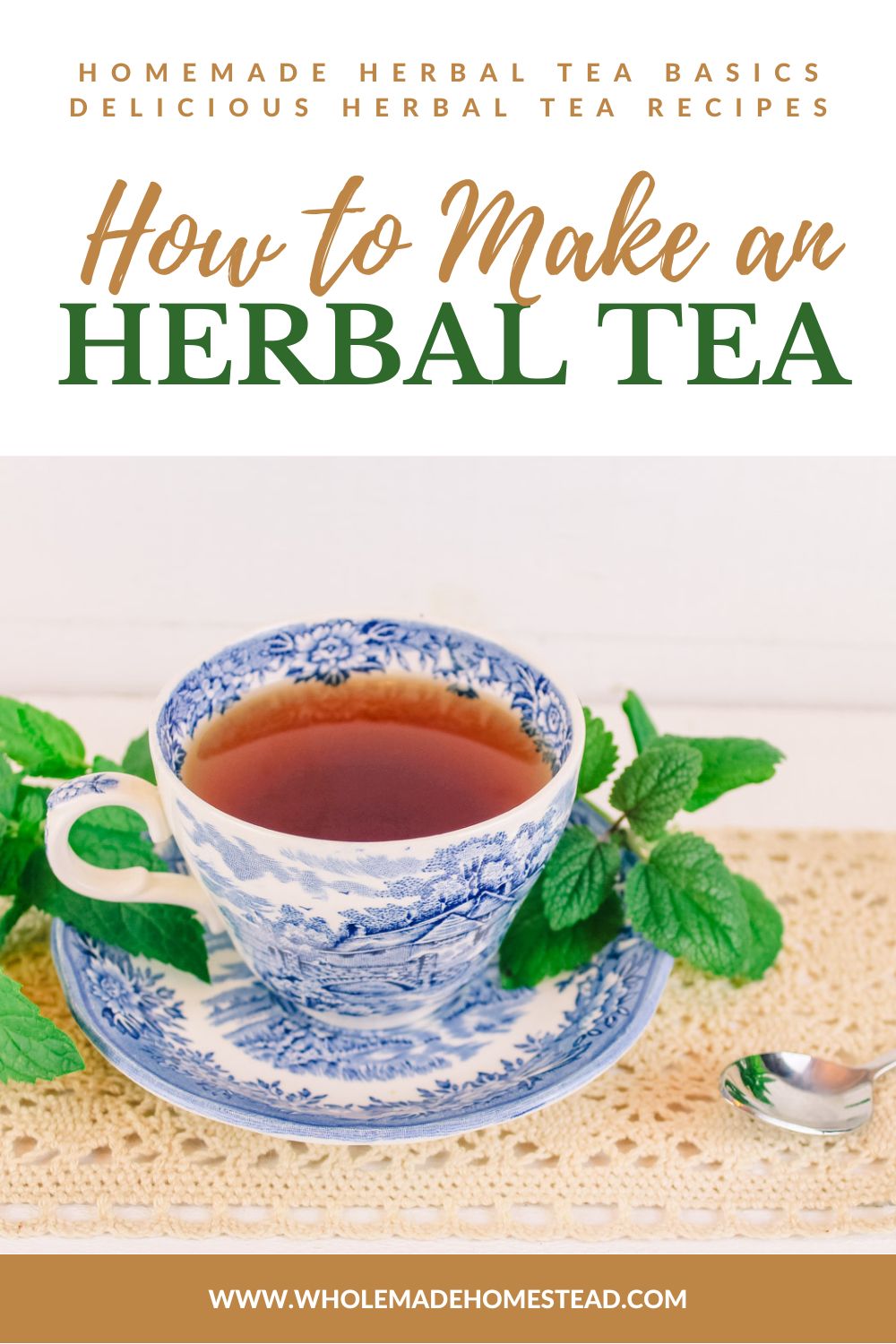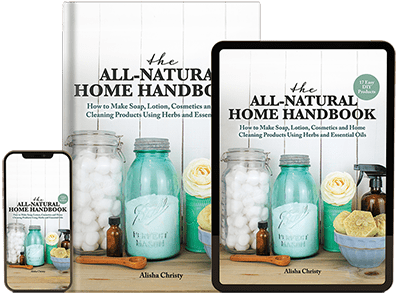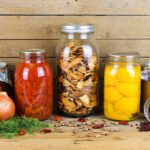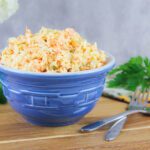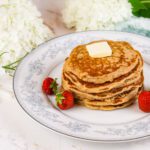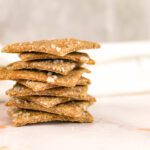Support your health and wellbeing by sipping on a mug of homemade herbal tea. With just a few ingredients you can make flavorful, delicious teas at home to energize or relax your body or to treat ailments. In this simple guide, you’ll learn the ins and outs of herbal tea making along with some of our favorite tea recipes.
Beginners Guide to Making Herbal Tea
When I first began my journey into herbalism, I was so excited. I planted peppermint, thyme, oregano and several other fairly common herbs. I had big plans for these herbs and couldn’t wait to use them to heal and treat a variety of ailments in my family. I had heard so many wonderful stories from other herbalists about the power of homegrown herbs. After a few months of sunshine, water and a bit of fertilizer, it finally came time to harvest the beautiful herbs. I carefully clipped each plant, saving the medicinally strong part, then brought them inside our home to dry.
Some herbs were hung. While others were laid flat on a screen.
Had you entered our home during this time, you may have thought we were a bit looney with all of the foliage scattered across our office and indoor porch. After a few weeks of drying time, the herbs were ready to be stored away.
Flash forward a month or two while I was standing in front of our glass cabinet filled to the brim with jars full of herbs. As I looked at all the herbs we had grown I wondered, now what? I had researched what these particular herbs did but I did not have much knowledge on how to use them.
Do I eat them? Cook with them? How can I use them externally? What in the world is a tincture?
If you have ever dove into the realm of herbalism, I am certain you can relate.
Homemade Herbal Teas
After a bit of experimenting, I learned it was pretty easy to incorporate herbs in my skin care routine, like homemade soap, lotion, lip balm and salves. Adding them into my home cleaning products was also a great way to use them. But how could I use these herbs in home remedies to treat illness, support my immune system or cure a common ailment like an upset stomach?
Herbal teas were the answer.
Generally when people think about an herbal tea, they picture a pretty box of tea, packed into paper tea bags that you would purchase from the grocery store. While some of these teas can be tasty, they don’t have the medical power that your body needs. Therefore, if you plan to use an herbal tea for more than just refreshment, it is best to grow your own herbs and create your own herbal tea at home. Or find a reputable supplier that sells medicinal herbs or tea mixes.
What is an Herbal Infusion?
An herbal infusion is basically a fancy way of saying herbal tea. An herbal infusion can be used when you are sick or when you are well and are looking for a way to support a healthy body. There are two types of herbal infusion, hot and cold.
What is a Hot Infusion?
Think of a hot infusion as a warm cup of tea. To make a hot herbal infusion, boil a cup of water, pour into a mug, then place your desired herbs into your cup. I recommend using a cotton tea bag or a tea ball so that you don’t have small particles floating in your tea. Place a lid on your cup of tea and infuse for about 5 minutes. Covering your tea while it infuses is important so that the volatile oils in the herbs do not escape in the steam.
What is a Cold Infusion?
Some herbs, such as marshmallow do better when they are infused into room temperature water. To create a cold infusion tea, just add the chosen herb into water and let soak overnight. In the morning, strain the herbs out and enjoy yourself a glass of tea. Cold infused teas can be chilled in the fridge, if desired.
How Much Herbs Do You Use in a Cup of Tea?
About 1-2 teaspoons of dried herbs per 8 ounces of water is all you need to make yourself a cup of herbal tea.
What is the Difference Between a Decoction and an Infusion?
Both a decoction and infusion are the two primary ways to make an herbal tea. An infusion is the most common way to make a tea and generally uses herbs in the form of flowers or leaves. A decoction involves heating the herbs for a longer period of time to extract their beneficial properties. Roots, barks and berries are best suited for a decoction.
Benefits of Herbal Tea
- To support a healthy body
- Boost your immune system
- Fight sickness, disease or an ailment
- Reduce inflammation
- Reduce anxiety
- Calm an upset belly
- Treat concerns with your livestock, pets or barn animals
- Clean your chicken coop and support the flocks respiratory system
Best Herbs for Making Tea
You can make a tea from almost any herb but here are some of my favorites I like to use when I made an herbal tea:
- Chamomile
- Mint
- Fennel
- Lemon balm
- Echinacea
- Yarrow
- Marshmallow
- Calendula
Other Herbs to Try in a Tea
- Raspberry leaf
- Ginger
- Dandelion
- Feverfew
- Licorice
How to Make Your Own Tea Mix
Making your own herbal teas at home is easy! All you need is a clean glass jar and your favorite herbs. To make your own tea mixture, combine your chosen herbs in a sealed container. Optionally you can also adds in dried fruits, spices or chocolate/cacao nibs/carob pieces. To pour yourself a cup of tea, add 1-2 teaspoons of dried herbs per 8 ounces of hot water.
How Long Do Herbal Teas Last?
If creating a hot tea, drink it as soon as the herbs have infused into the water. Cold infusion teas can last a couple of days if stored in the fridge. When creating a dried tea mixture, store in a cool, dry place, out of direct sunlight and the tea should last for about a year.
Herbal Tea Recipes
Upset Stomach Tea
I find if my belly is full of gas or is cramping, this tea helps to calm and soothe it.
1 part peppermint leaf
1 part lemon balm
Slice of dried or fresh lemon, optional
Respiratory Tea
Do you have congestion or feel a cold coming one, give this tea a try. Calendula works wonders to reduce inflammation. Pine needles, though unusual, are great for respiratory issues.
2 parts calendula
1 part marshmallow leaf
1/2 part echinacea
1/2 part mint leaf
1/2 part pine needles
Rest Easy
This herbal tea helps to calm nerves while also tasting like a delicious apple cinnamon treat.
1 part chamomile
1/4 part dried apple chips, chopped
1/8 part cinnamon chips
Optional Tea Add-Ins
Honey
Agave
Cream
Looking for more tasty teas to try? Doc Jones from the Homegrown Herbalist has a terrific selection of herbal teas.
More Ways to Use Herbs in Your Home
This information is not intended to treat or prevent any disease. All information is for entertainment or educational purposes only.

